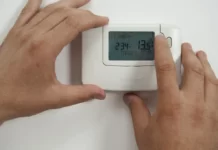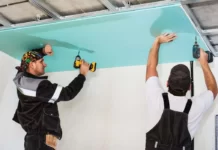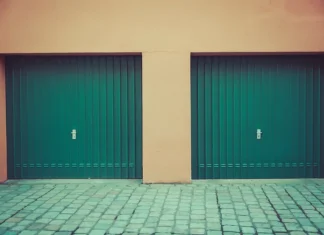One of the most crucial things to have when purchasing a property is a home inspection. Buyers may make sure there are no significant issues with the property that is about to become their home by using the experienced guidance of a qualified home inspector. However, a lot of individuals are unaware of how an inspection works or what inquiries would enable them to benefit the most from it.
Additionally, some people choose to completely skip a house inspection, which is never a good idea. If you want to be certain that a house is entirely free of any undiscovered dangers before having a house inspection then ask these questions. This guide will help you completely with home inspection.
Questions to Ask During a Home Inspector
1. What Is the Inspector’s Background?
A prospective buyer can acquire what they need from the procedure if the inspector is qualified and experienced. The top inspectors have to have knowledge of building and construction. For instance, a property buyer may inquire as to the inspector’s experience in the electrical or plumbing professions. This kind of expertise can provide inspectors with the knowledge to discuss possible problems in this area directly.
Additionally, buyers should confirm that their inspector is bonded, insured, and licensed. Buyers may ensure that the inspector will examine every aspect and find any potential problems by verifying that they have the necessary certifications.
2. Are There Any Red Flags?
The next stage is to address any concerns in the house that might make or break the sale after choosing the correct inspection. Deal-breaking concerns, often known as red flags, are flaws that will be expensive to fix without providing a significant return on investment. It’s critical to quickly identify significant problems. Buyers ought to inquire of the inspector what problems they would immediately fix if it were their house. Time, money, and worry may be saved by seeing warning signs as soon as feasible.
3. What Are the Most Expensive Issues?
Before deciding to purchase a property, it is important to be aware of high-cost concerns such as roof, foundation, wiring, unpermitted building, and HVAC system difficulties. In certain instances, fixing the problems could cost more than the task is worth. In other cases, they provide the buyer with a good negotiating position to get a lesser price. If a buyer learns that the home’s HVAC system has to be changed, they may decide to make a lesser offer.
Prospective homebuyers might also ask their inspector for ideas if a repair needs to be made right immediately. The top contractors in the region and those that potential buyers might wish to avoid are known to many home inspectors.
4. What Is the Condition of the Roofline?
The most costly portion of a house to repair is frequently the roof. If roof problems are not fixed, they may eventually cause significant structural damage. Wavy rooflines can be a sign of several common roof issues, such as moisture buildup in the attic, dry rot in the walls, leaks, inadequate insulation, or issues with the foundation.
The roof should be in great condition and be relatively new. All of these concerns, including cracked or missing shingles, flashing difficulties, and worn and missing gutters, must be fixed as soon as possible.
5. How Much Attic Insulation Is There?
Inspecting the attic is usually the last thing a home inspector does, or at least during home inspections but it is important to make sure that it was inspected. You would frequently find attics with missing or grossly inadequate insulation. And occasionally uncovered insulation that had pee stains on it from mouse infestations.
There are instances when fiberglass insulation is so brittle and compacted that it scarcely provides any insulating value. It is crucial that the loose cellulose or fiberglass insulation is a few inches higher than the top of the joists supporting the attic ceiling. Repairing insulation that has deteriorated, been damaged, or is missing from the attic can be expensive.
6. Do windows work well?
During a home inspection, the windows may make a major difference, and clients leave houses with awful, outdated windows.
The single-paned, ancient windows are likely the largest problem. These windows just have a single layer of glass and scarcely have any R-value at all. Storm windows are occasionally installed by homeowners in an effort to improve the insulation of these windows, and they do so to a limited extent.
With two panes of glass and an inert gas on the inside, modern energy-efficient windows are far more insulating. It might be a significant problem when you consider that replacing all of the windows would cost $10,000 or more. It’s a good idea to be aware of the state of the windows since occasionally they all don’t open correctly, tumble down when opened, or have fogged glass.
7. How Are The Grading And Drainage?
Grading and drainage issues should be diagnosed by home inspectors. Grading, or the area of land around a house, should slope away from all dwellings. The dirt slopes away from the foundation, diverting water from it.
It’s crucial that the downspouts function correctly and don’t dump water close to the house. In order to get water many feet away from the foundation, It is usually advised to downspout extensions.
Simply ask the home inspector whether he believes that water is draining away from the property adequately and whether he has any suggestions for enhancing drainage. You can also hire a landscaper to discuss with if you need further advice.
8. Get a copy of your insurance and license?
Not all states have home inspector licensing so check it beforehand before making a booking for inspection and if it is allowed the first thing you need to do is to get over a copy of the license, insurance, and a pre-inspection agreement.
The pre-inspection agreement specifies what will be inspected, its cost, and when it will take place. Although licensure may not exist in your state, your home inspector should at the very least be certified by a home inspector association.
Final Thoughts
Don’t be afraid to ask your home inspector questions during the inspection.Home inspectors are also educators on how homes work and home maintenance. We know that it is important to understand at least the basics of operating a home. Before hiring a house inspector, it’s a good idea to jot down any queries you have. You should also prepare a list of pertinent inquiries for the home inspection itself.












